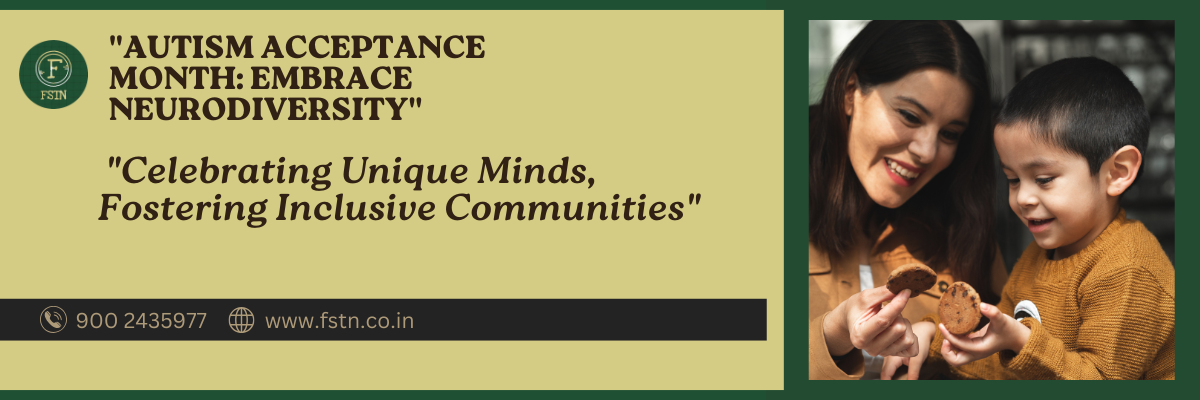April is "Autism Acceptance Month", a time to celebrate neurodiversity and advocate for a society that accepts autistic people as valued members. A balanced diet is vital for brain function, sensory regulation, and digestion, especially for autistic people who may have specific food preferences and nutritional needs. Sensory Processing Challenges: Certain food textures, temperatures, scents, and colors can cause food aversions.
1. Food choices: Restricted dietary preferences may result in nutritional deficits
- Gastrointestinal issues : Individuals with autism are more likely to experience constipation, acid reflux, and food intolerance.
- Routine-Based Food Choices: Demand for predictable meals and food selections may limit choices.
Nutrients to Promote Optimal Health: A well-balanced and nutritious diet helps improve brain function, digestion, and overall health.
2. A few primary areas that requires attention are the following:
An autistic person may potentially experience gut dysbiosis or stomach upset. A diet rich in fibers, yogurt, probiotics, and fluids may offer relief.
Fish, walnuts and flaxseeds contain Omega 3 Fatty Acids which are essential for brain development, cognitive functions, and optimal behavioral functions.
Magnesium rich foods such as nuts, seeds, and leafy greens promotes better relaxation, sleep, muscle relief, and mood.
Yogurt and fermented products along with a variety of vegetables and fruits contain probiotics and fibers that foster digestive and gut health.
Lean meats, beans and lentils are important sources of protein and iron which help concentrate and energize.
Dairy products besides the eggs & whole grains contain B Vitamins, which are important for an active and healthy nervous system.
Vitamin D & Calcium support bone strength which may become deficient if dairy is excluded.
Casein free or Gluten-free diets have been tried in some autistic individuals. Although there is conflicting evidence, some parents and individuals experience beneficial effects on their symptoms.It is essential to try such diets under the guidance of a Certified Dietician or Nutritionist to prevent nutritional deficiencies.
Tips for Personal Care assistants and Individuals
- Maintain mealtimes that harmonize with the individual's schedule.
- Sudden changes should avoided and implement new foods through visuals or food charts gradually.
- Emphasizing safe range to foster autonomy.
- Prepare meals together to establish familiarity and decrease stress related to food.
Celebrate small successes—having one new food is a significant step!Autism Acceptance Month encourages us to remember that accepting autistic people means more than being aware—it means accepting their experiences, preferences, and health requirements, including diet. By adopting sensory-friendly meal strategies, encouraging balanced diets, and minimizing meal stress, we can make autistic people feel at ease, empowered, and well-fed.



